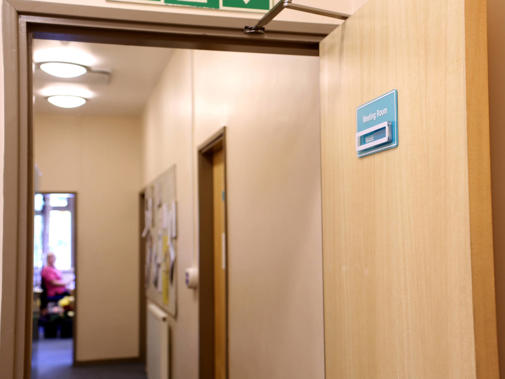A number of years ago, before I was even a medical student, I went to see my GP. Some gay friends had suggested to me that, as a gay man, I should have had a hepatitis vaccination.
This was before I even knew that there was more than one form of the hepatitis virus. I was sheepish raising this topic with the doctor, yet her response was something completely unexpected.
It was one of those consultations in which the issue is skirted around until I eventually managed to say, 'there is one other thing. [Long pause] Well, it’s just that my friends were telling me that I should get a hepatitis vaccination, on account of me being gay and all'. My GP’s response was 'wonderful!', which was not quite what I was expecting: perhaps it was not quite how she intended to reply.
But, after a chat, she explained that, unlike with sex, religion, or ethnicity, there was not a system in place for capturing details of patients’ sexuality. Frustratingly, this meant that as a GP she was not able to target appropriate care to her LGBT patients, ie hepatitis A and B vaccinations for gay men.
Fast-forward to 2017, and NHS England publishes its Sexual Orientation Monitoring Standard to enable to the collection of information regarding patients’ sexual orientation in a uniform manner across all relevant services. One of the constituted aims of GLADD (The Association of LGBTQ+ Doctors and Dentists) is to collect and disseminate information on lesbian, gay, bisexual and trans issues relevant to the practice of medicine and dentistry.
With this aim in mind, GLADD fully supports the introduction of this information standard, which will allow the collection of population-level data about the health of the LGBT community, with the hopes of one day using this data to allow health interventions to be targeted at the community and combat the well-documented health inequalities it experiences.
This introduction will be challenging; patients will no doubt be concerned that questions about sexual orientation will cross a line from diversity monitoring to an invasion of privacy. But without declaring their individual sexual orientation, patients will not be able to benefit from the population-level data that is collected.
So, how is this relevant to us as clinicians? Since 2016, the GMC has required newly registered doctors in the UK to complete their diversity monitoring questions upon registration, including information about sexual orientation.
More recently, they have written to all UK registered doctors to ask those who registered pre-2016 to update and complete their diversity monitoring categories, in an attempt to paint a bigger picture of the protected characteristics of the UK doctor population.
The GMC states that this data will be used to understand variations in attainment across different groups of doctors, to develop the workshops run for doctors new to UK practice, and to better understand why some doctors are referred for fitness-to-practise issues more than others.
Yet this campaign from the GMC will undoubtedly be impacted by doctors having the same concerns that patients do towards the NHS England Sexual Orientation Monitoring Information Standard, in that there will be concern that it could be seen as an invasion of privacy.
Other organisations, such as the BMA, experience similar problems with low completion rates for diversity monitoring data, thereby being unable to target welfare campaigns and other such support to relevant members.
Perhaps then, we all need to make an effort to complete our equality monitoring information, and to lead where we want our patients to follow.
Christopher Morrison is a junior doctor in the West of Scotland and is a member of the BMA’s equality, diversity and inclusion advisory group. Christopher joined GLADD (The Association of LGBTQ+ Doctors and Dentists) as a medical student and spent four years as the organisation’s co-chair. Through GLADD, Christopher is interested in the rights of LGBT health professionals and the care of LGBT patients; he has organised teaching events for professionals on LGBT health topics, been involved in surveys of homophobia and biphobia in NHS workplaces, and worked with partner organisations to improve the experience of LGBT medical students.
Help BMA membership
You can update your BMA equality monitoring information on your online profile. By providing this information, you can help the BMA better understand the make-up of its membership and therefore better respond to the challenges faced by its members from all backgrounds in their places of work and study. All equality monitoring information is anonymised, will not be shared with employers or third parties, cannot be used to identify individual members, and you can always choose the ‘Prefer not to say’ option for all categories. Your data is stored in compliance with GDPR. Find out more here.

